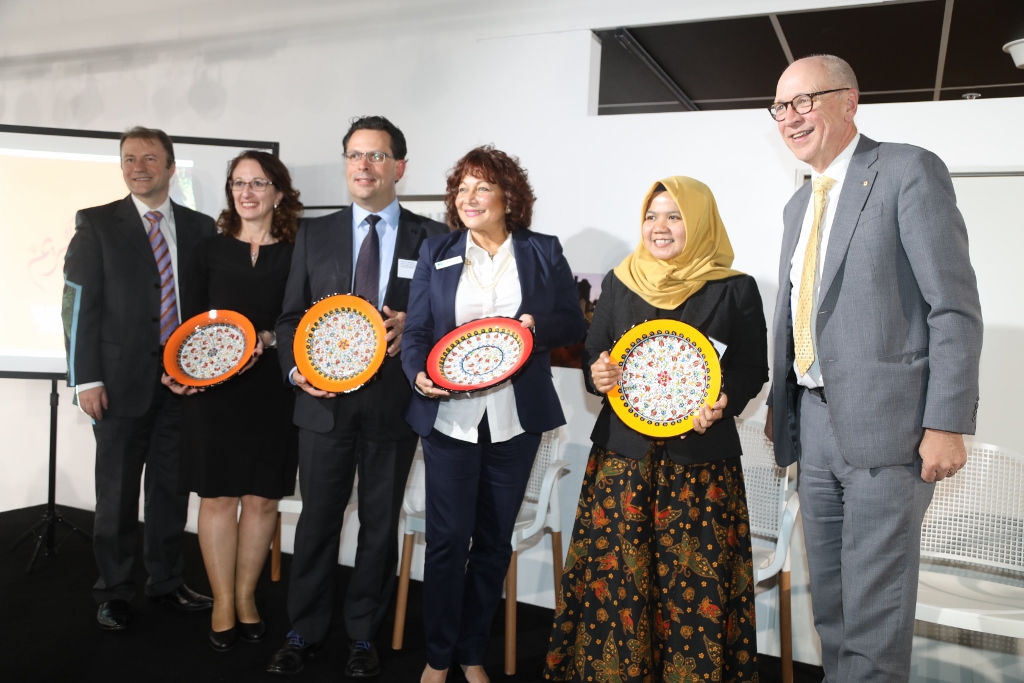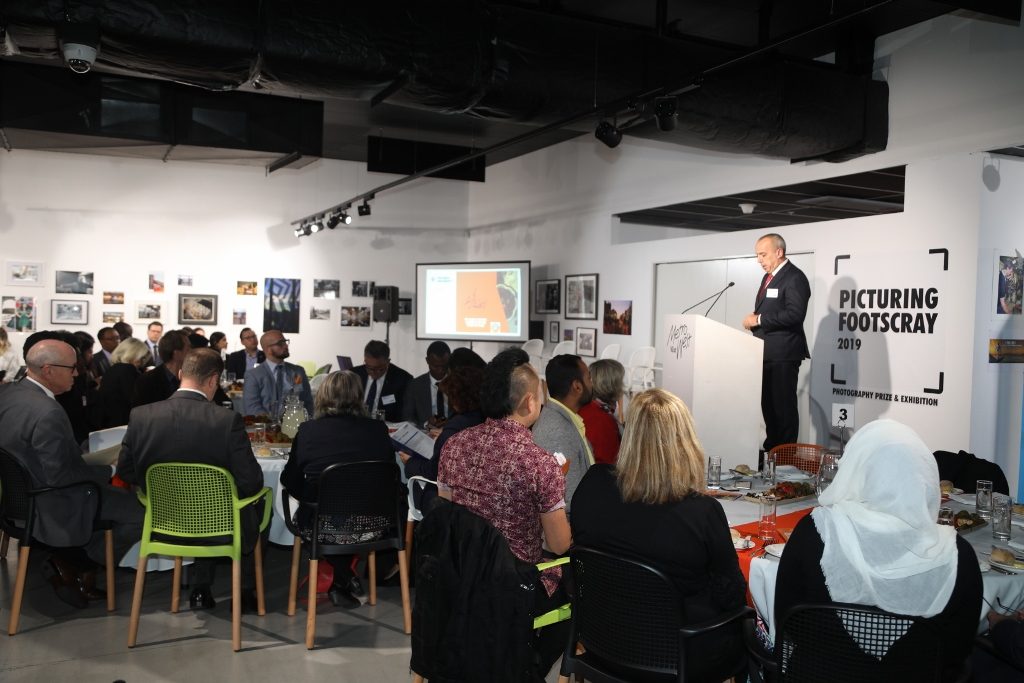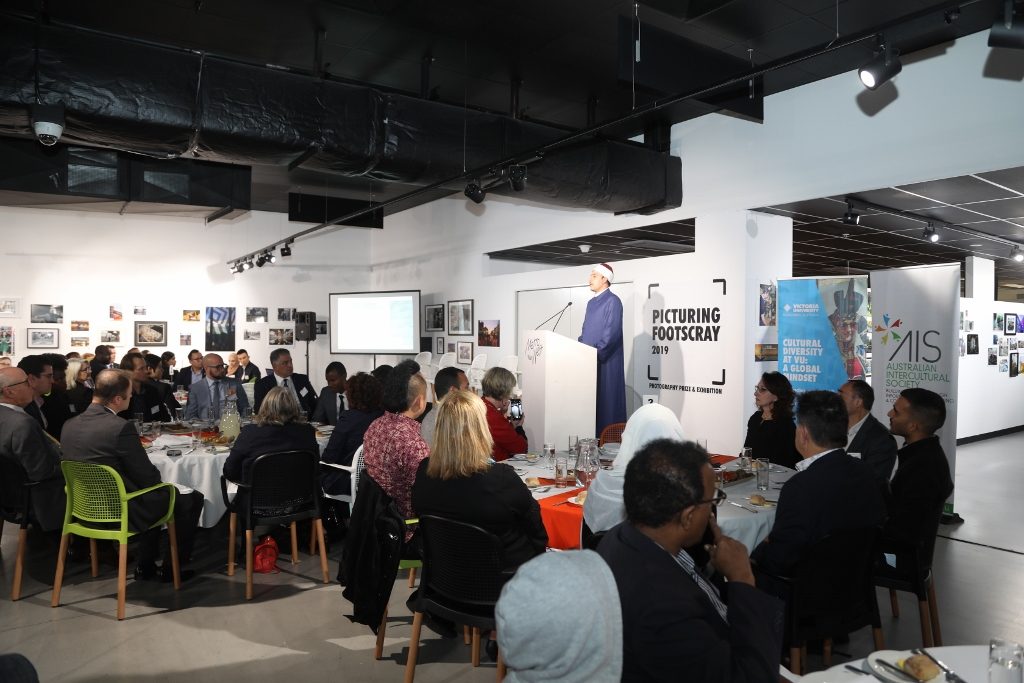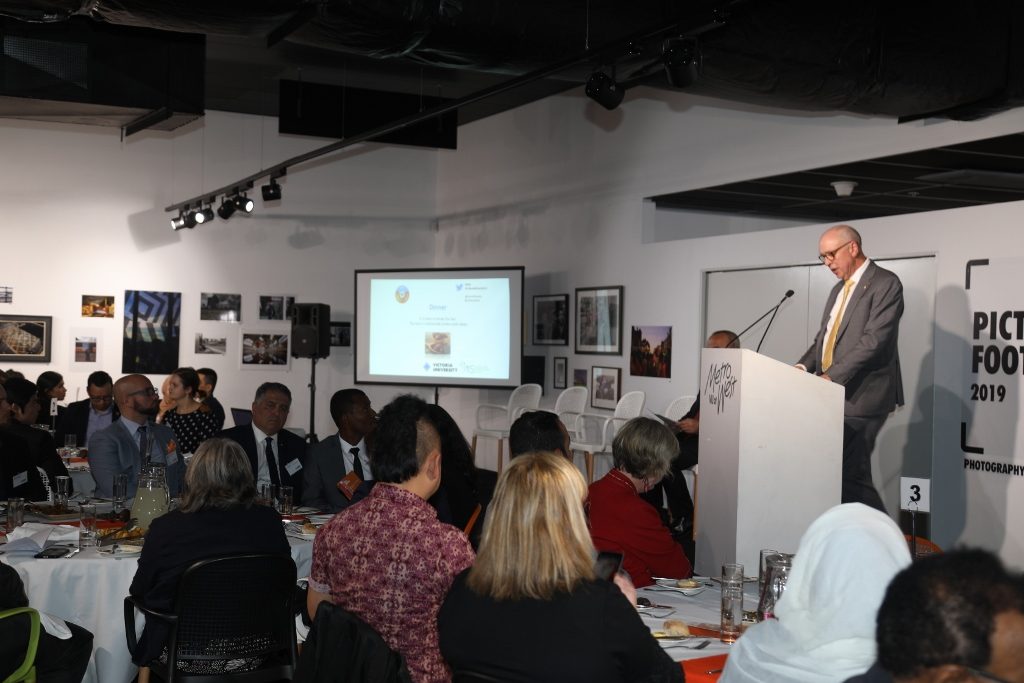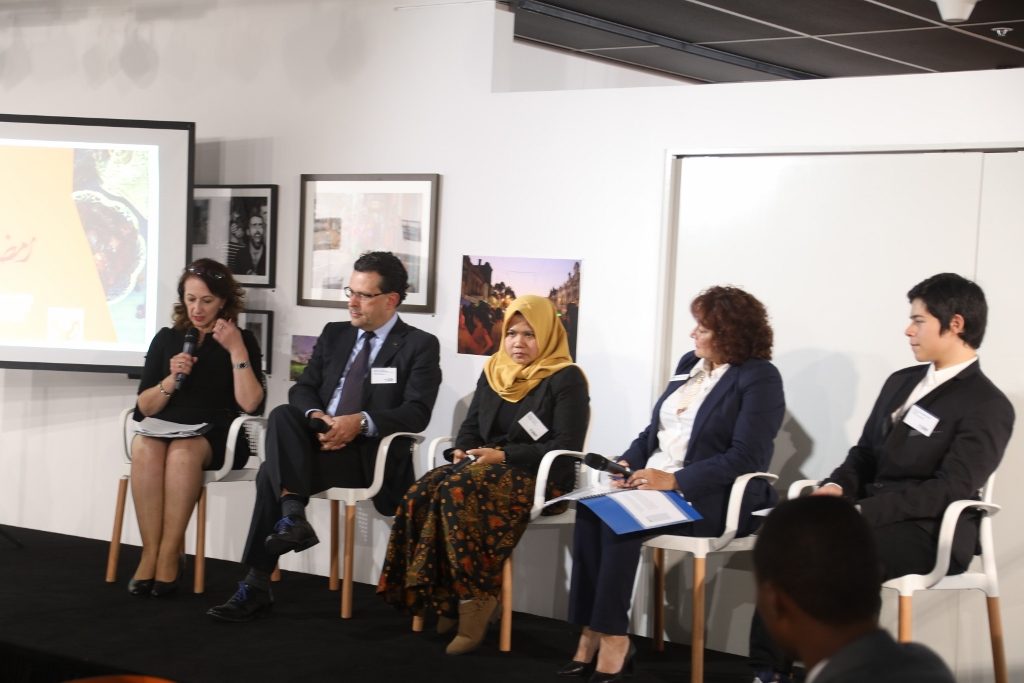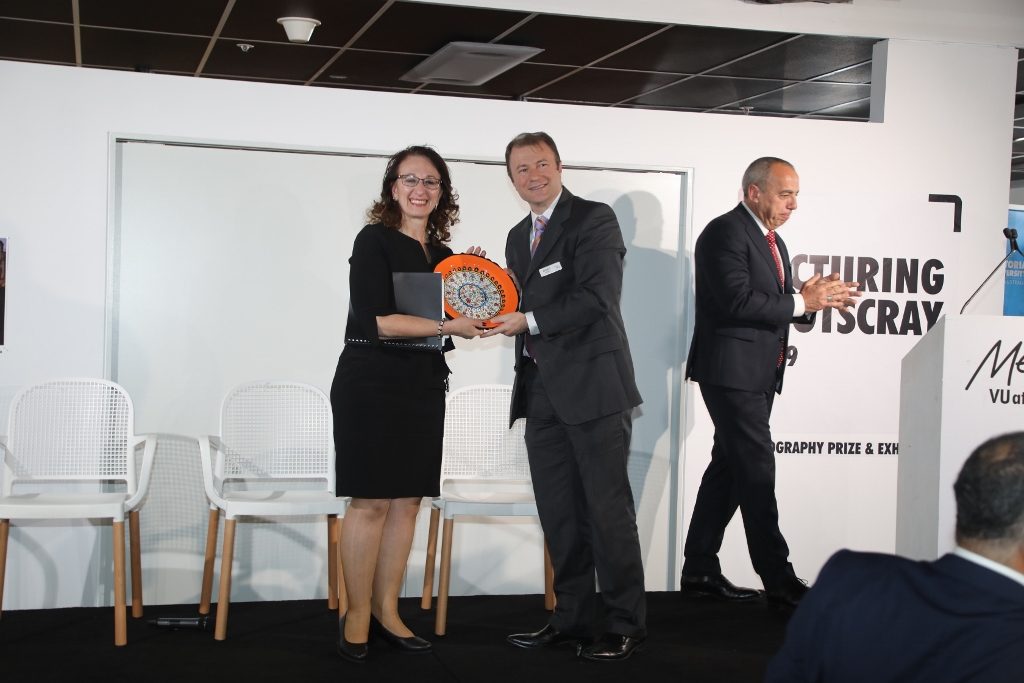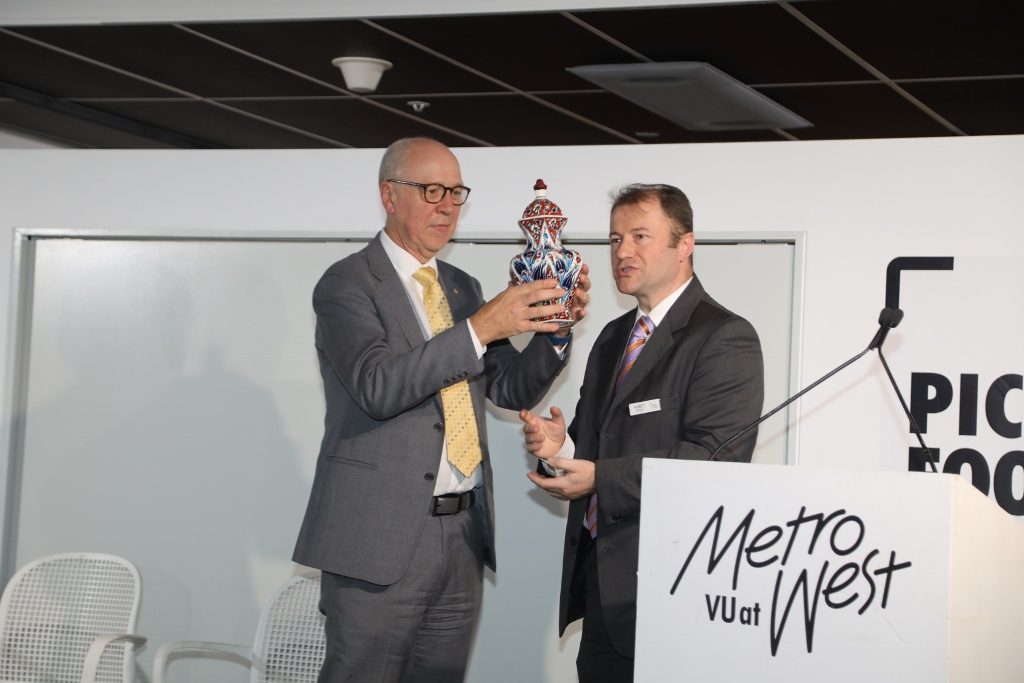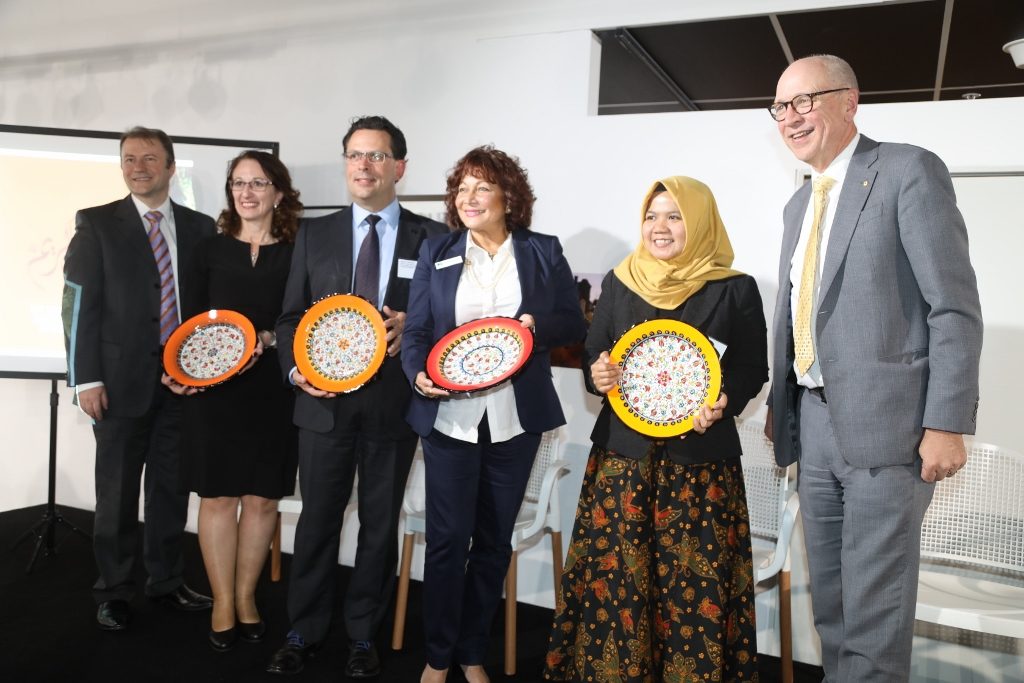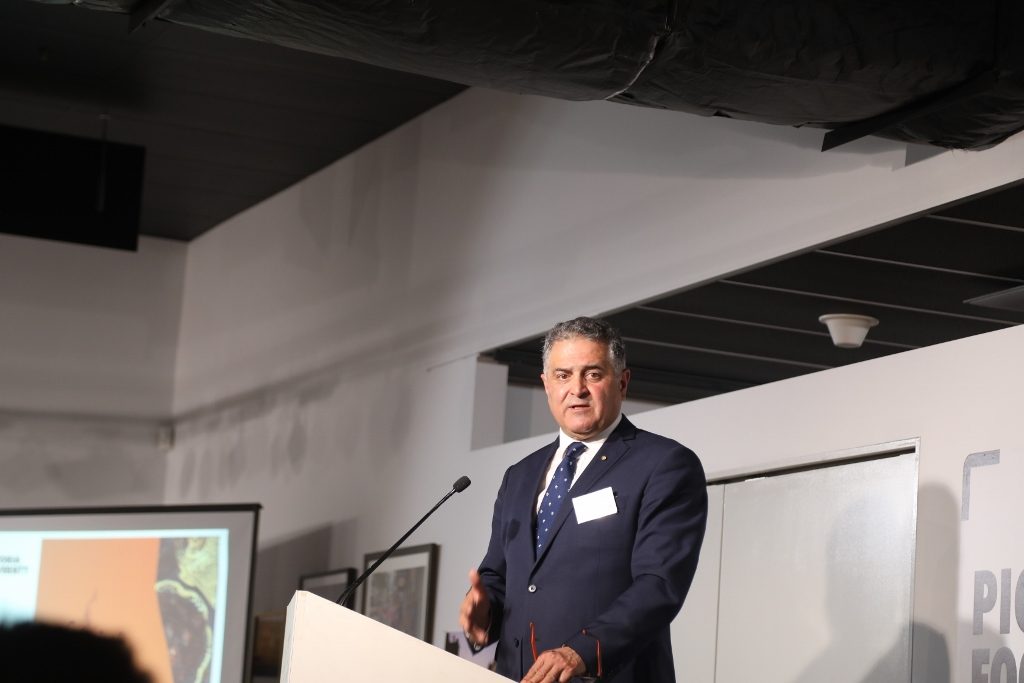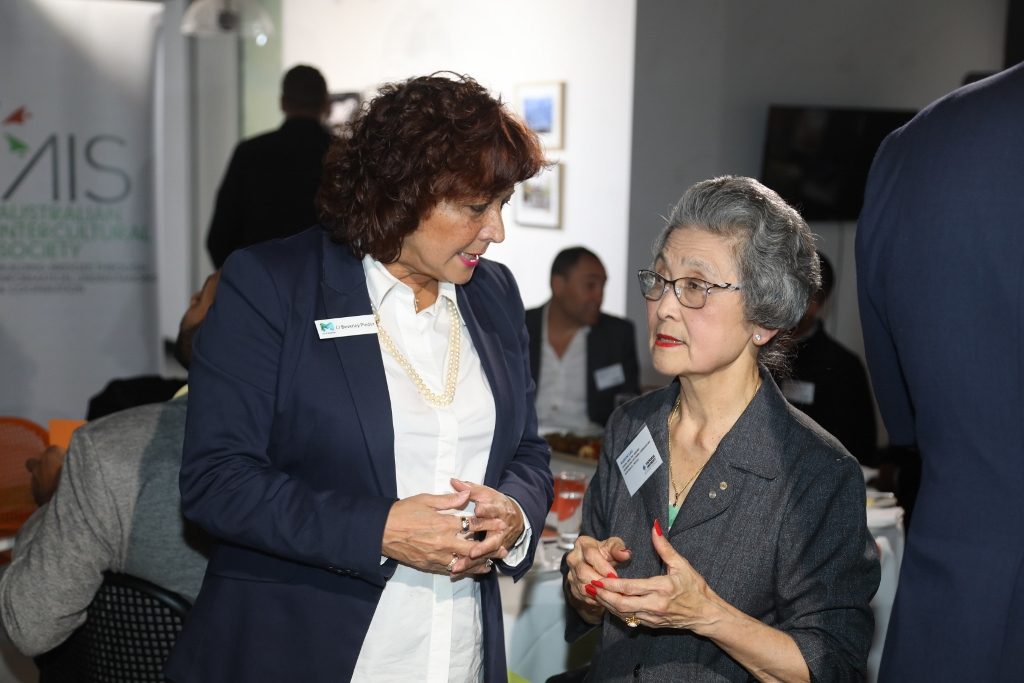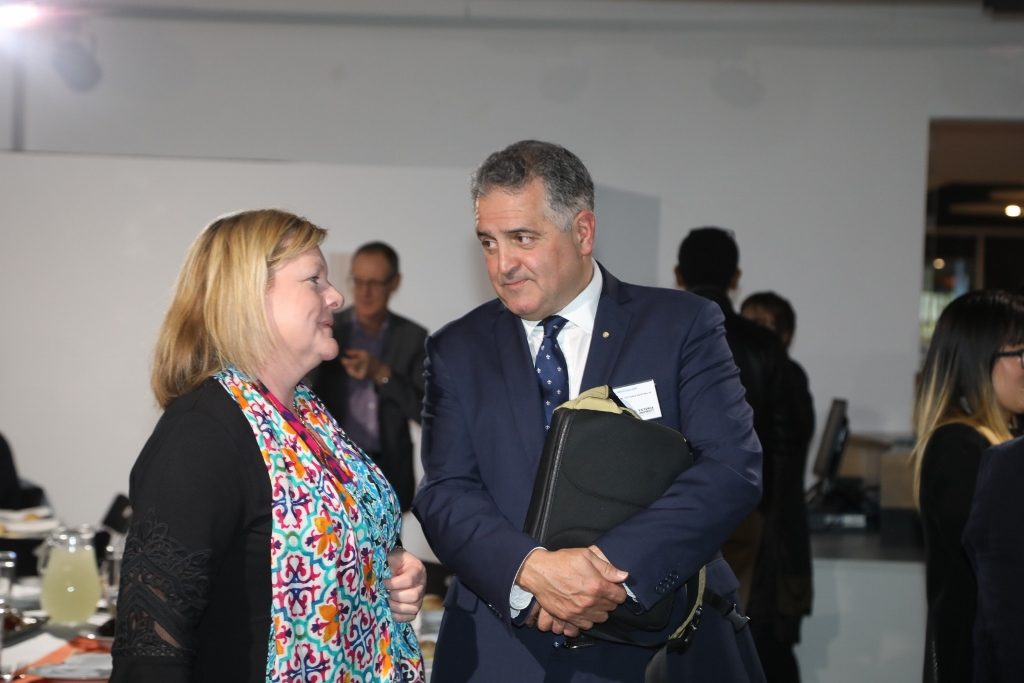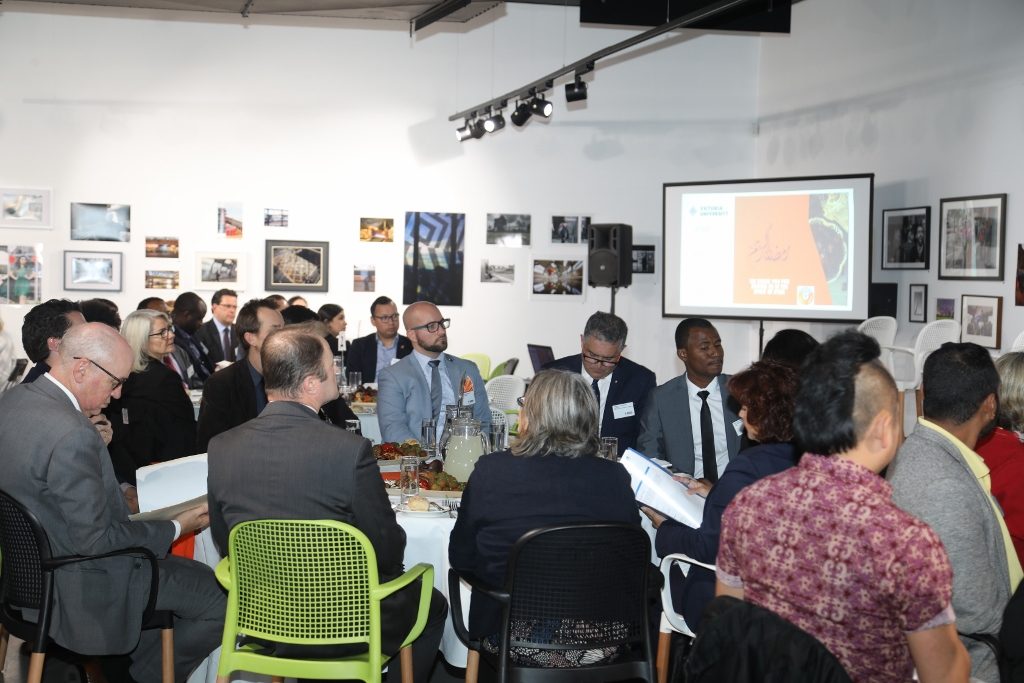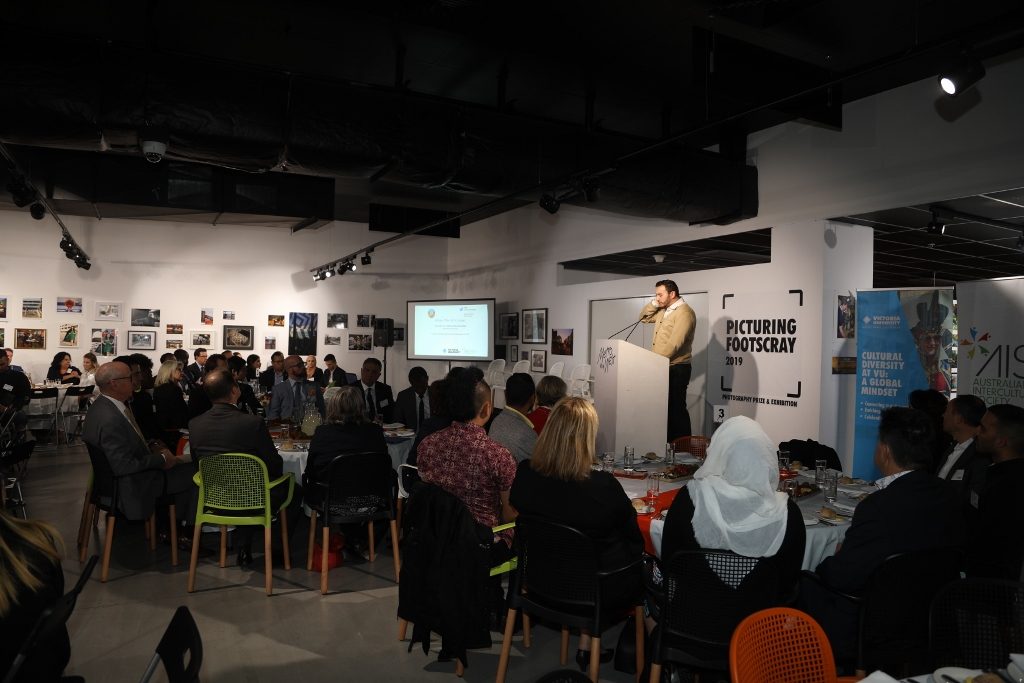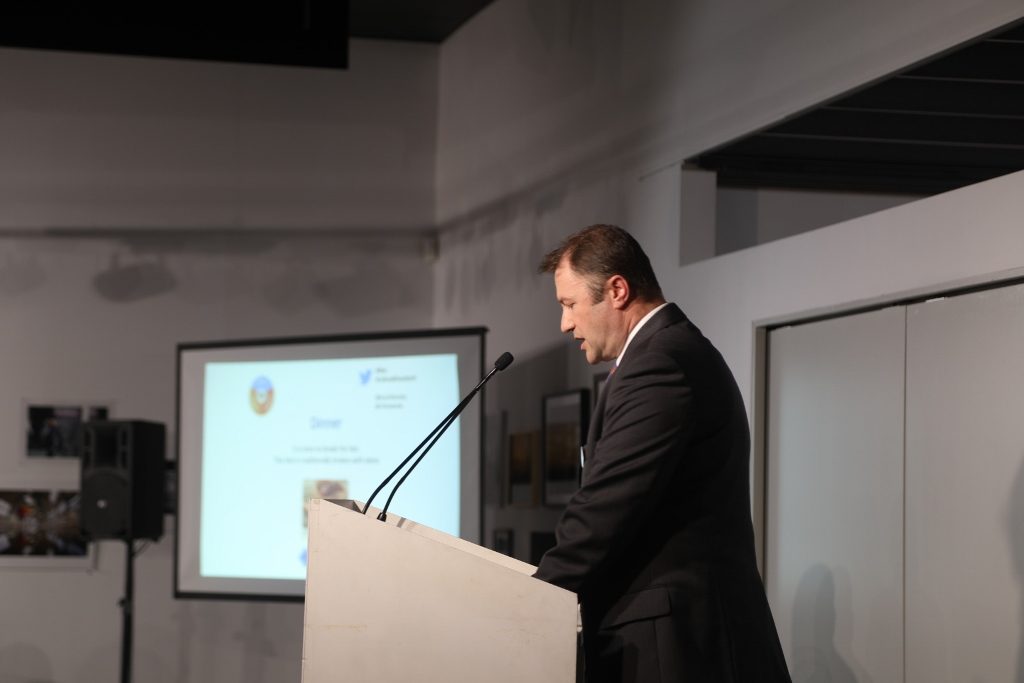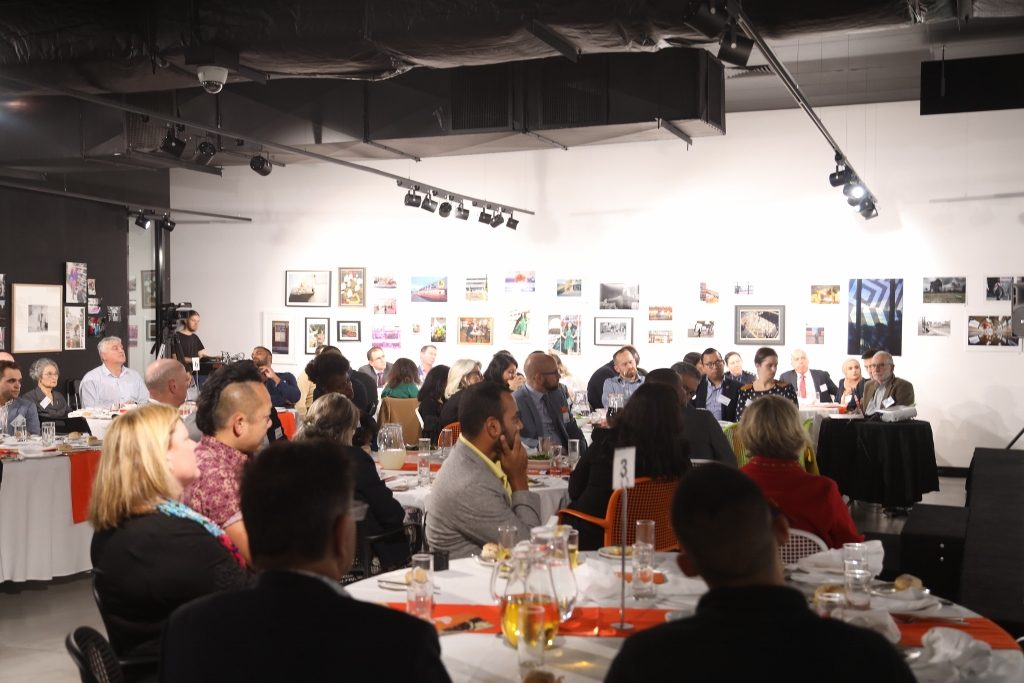Victoria University Iftar Dinner 2019
On the 14th of May 2019, the Australian Intercultural Society in partnership with Victoria University, hosted the 4th Victoria University Iftar Dinner. The evening was MC’d by Prof Ian Solomonides, with welcome speeches offered by Professor Peter Dawkins, the Vice Chancellor of Victoria University and the AIS executive director Ahmet Keskin.
The night began with a welcome from the master of ceremonies, which was followed by a call to prayer by Mujdat Keser and a reading of the Qur’an Imam Aslam Muhammad.
Vice Chancellor Peter Dawkins then took the stage to discuss the meaning of ramadan, the significance of Iftars, and the importance of programs such as this dinner. He stated that Iftar’s are a “time where family and friends gather in the spirit of coming together to share a meal. It’s a time of reflection on the spirit of humanity, generosity, friendship, and belonging. It’s a time when homes are opened up, when charity is provided and connections are made in the community”. Dawkins then stressed the goals and plans put in place by the University to “celebrate diversity and multiculturalism”.
“We too share the vision of connecting members of our community. Victoria University understands that its through this connection that we are enriched as a community and as individuals and provides us an opportunity to come together to celebrate the common bonds that hold us together while celebrating the richness that diversity brings.”
Next, the executive director of AIS, Ahmet Keskin took to the podium and spoke of the goals of the Australian Intercultural Society.
“We realize that it is very important to have the freedom to express your view, but we also feel that it is very important to be mindful and responsible in expressing your view because of the impact it has on others and if we are working towards a cohesive society, it is important to be mindful of the people who have some degree of difference, whether it be from the skin color, from different beliefs, different ideologies, different football team even, but to be respectful in the way you express your view without deafening, disparaging, even condescending the person opposite you.”
He spoke of the recent tragedies that were driven by hate throughout the world saying “[Look] at Christchurch, how that thought eventually turned into an act, we saw it in Sri Lanka where that idea got carried out in action, and we saw one person be brazen enough to walk into a Synagogue in the US and shoot randomly resulting in the loss of life.” He went on to explain that AIS is working “for people to respect one another, respect and be respectful of the color of their skin, or their faith, or any ideological views they might have, but also go beyond respect and try to seek understanding and acceptance.”
The main feature of the program was a panel discussion about Charity and the need for giving featuring participants from all walks of life, including a student and founder of a charity for the hard of hearing, Jack Featherstone, Councillor Beverley Pinder from the City of Melbourne, Vice President of Vocational Education and Executive Director Victoria University Polytechnic, Grant Dreher, and a research student from indonesia named Ela Nurhayati. The panel was lead by Dr. Teresa De Fazio.The panel began by introducing each member and giving a background on their lives and achievements. Ela spoke first to explain the third pillar of Islam and how it is about building and maintaining a relationship with God, but also about building and maintaining a relationship with society.
Next, Dreher discussed his upbringing in an environment where his mother always stressed the importance of giving to those who do not have as much as you do, such as making lunch for all of his friends who could not afford to bring lunch to school every day. He continued his charitable actions into his adulthood by working at his local soup kitchen a few times every week and emphasized how there are people who need our help living right around the corner from us and “you don’t have to do much to make a difference.”
Keeping to the theme of living a charitable lifestyle, Councillor Beverley Pinder spoke of the muslim woman who ran her household as a young girl living in Sri Lanka. This woman gave her a home, even when they could not afford to pay the rent most months. This was the beginning of her mindset of charity and giving. When she moved to Australia, she said she “didn’t know she was colored”. She quickly learned that others viewed her differently and made a conscious effort to be more “Australian”, proving she was no different than any of the people around her. However, she was different. She had a better ideology. Her life became about charity for all who surrounded her – “Father bob calls it communitarianism, and that’s what I subscribe to. Community first. It has got to be for you first, my psychologist doesn’t think that’s a good idea but that’s my daily life, it’s about charity… Not just about giving, but it’s a state of being.” Another young man with a heart meant for charity is Jack Featherstone. Since the age of 10, Jack has been drawn to helping others, and, at the young age of 16, started a charity organization along side a young woman he met that provided aid to those who are hard of hearing. Even today, Jacks passion for helping those in need was almost tangible. The panel continued to discuss how Melbourne, or any place, is defined by its actions and how we as a community can make sure that definition is one of compassion, acceptance, and understanding.
The vote of thanks was offered by former Speaker of the House the Hon Telmo Languiller who talked about how it is important to keep the state harmonious by joining communities when they extend an invitation to an iftar dinner, a festival or some other initiative. The more we engage with each other the more we better understand each other was a statement he highlighted.

